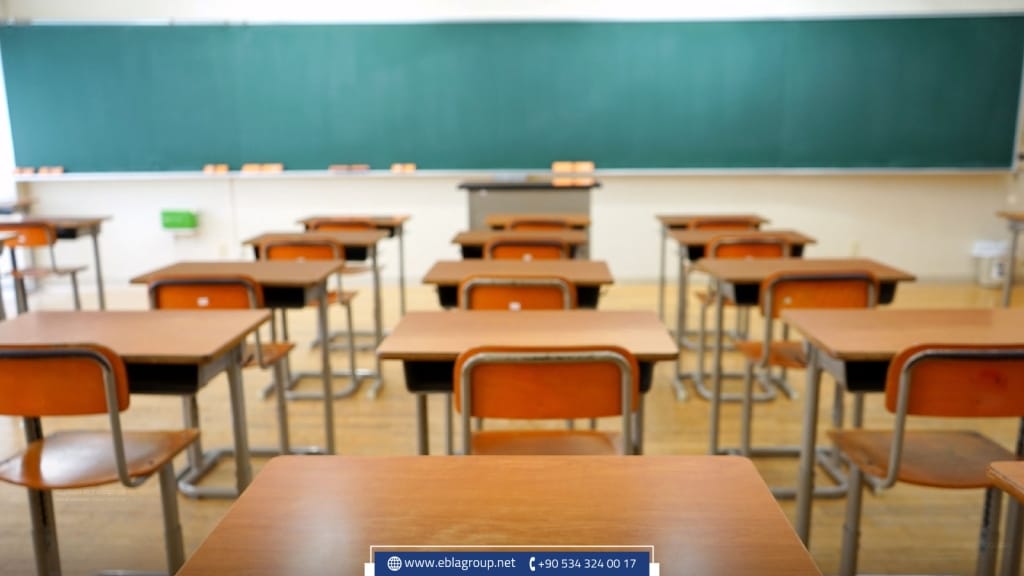Education in Turkey – why to study in Turkey?
Education in Turkey is a desirable option for foreign students. Turkey is an excellent option for experiencing a new culture while remaining close to the East and the West. In addition, Turkey has a growing academic reputation, with prestigious schools offering competitive education.
An introduction about education in Turkey:
The system of education in Turkey is under the supervision and control of the state, namely the Ministry of National Education.
Compulsory education lasts from age 6 to 14. Primary and secondary education is financed by the state and free of charge in public schools. Higher education is not mandatory but required in order to then progress to universities.

Advantages of studying in Turkey:
- Turkey enjoys a diverse culture and a conservative character.
- Moreover, studying in Turkey gives you the opportunity to get a degree from the second fastest growing economy in the world.
- Turkey is interested in scientific research and sets a large financial budget every year.
- Additionally, Turkish government schools are free and spread all over Turkey, and the level of education is good.
- Furthermore, Turkey offers low cost of living and affordable tuition fees compared to other countries.
- Turkish universities offer a high-quality education competing with universities all around the globe.
- In addition, students in Turkey have special discounts on almost all services provided via the Turkish government and the most important are: public transportation, museums, attractions, Mobile Internet Packages, cinemas, theaters and others.
Stages of basic education in Turkey:
Pre-primary education in Turkey:
Kindergarten education in Turkey is pre-primary education, usually in the larger towns and cities. In addition, it is optional for children of 3 to 5 years of age as they are underage for compulsory primary education.
The purpose of this education is to ensure physical, mental and sensory development of children and the acquisition of good habits. Moreover, it is to prepare children for primary education and to create a common atmosphere of growth for those living in inconvenient circumstances. In addition, Pre-primary education ensures that students can speak Turkish correctly and well.
Pre-school education is given in kindergartens, daycare homes, nursery classes in primary schools, and in private nurseries, all under the supervision of the Ministry.
Primary education in Turkey:
Primary education is compulsory for all boys and girls at the age of 6. Moreover, it is free of charge in public schools. These schools provide eight (4+4) years of education.
This educational level is divided into two mandatory levels:
- Level 1: First School (İlkokul 1. Kademe): The duration of this level is 4 years and covers grades 1 to 4.
- Level 2: The duration of this level is 4 years and covers grades 5 to 8.
At grades 1 to 3, there are 4 core subjects: Mathematics, Turkish, foreign language, and life sciences (Hayat Bilgisi). In grade 4, instead of life sciences, science and social studies is taught.

Registration takes place in the schools close to the student’s home. Moreover, most primary school children wear uniforms to avoid class differences.
Undoubtedly, the purpose of primary education is to ensure that every child acquires the basic knowledge, skills, behaviors, and habits to become a good citizen. It also aims to raise students; in line with the national moral concepts and prepare them for life and for the next education level parallel to their interests and skills.
Secondary education in Turkey:
Secondary education covers the education of children between 15 and 17 for at least three years after primary education
Moreover, the government is responsible for most of these schools and education in these schools is free of charge to provide equal opportunities for the children with limited finances. The students are placed according to the results of an examination. There are also many private high schools, which are not free of charge.

Secondary education aims to give students a good level of common knowledge, and to prepare them for higher education, for a vocation, for life and for business in line with their interests, skills and abilities.
Undoubtedly, graduates of the high schools can attend universities if they pass admission exams.
Types of secondary schools in Turkey:
- Vocational and Technical Anatolian High School.
- Anatolian High School.
- Evening High School.
- Social science High School.
- Fine Arts High School.
- Religious Vocational High School.
- Science High School.
- Sports High School.
Private schools in Turkey:
Private schools mostly follow the Turkish national curriculum with the language of instruction being Turkish, while some of the more prestigious private schools offer a bilingual education.
Moreover, these schools are generally owned and operated by associations or charitable persons/businesspeople.
As evident from the name, these schools have annual fees for tuition, food, and accommodation.

In addition, some may offer varying scholarships for students from lower socioeconomic backgrounds, special needs, or demonstrated academic success or achievements in sports or the arts.
International schools in Turkey:
There are a number of international schools in Turkey, with the majority located in Ankara, Bursa and Istanbul. These schools offer various foreign curricula, including English, German and French. Some of these schools also offer the International Baccalaureate (IB) program.
Most international schools offer students the opportunity to learn the Turkish language and have field trips and cultural activities to assist children to integrate better into Turkish culture and society.
Thus, we talked about the education in Turkey, including the basic education, the private schools and the international schools in Turkey.
Edited by: Ebla Group Real Estate
If you like the topic, do not forget to share it with your friends.
Related articles:
Best Cities in Turkey to Study



